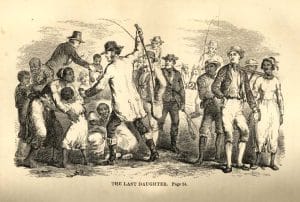Ok, let’s get into it.
After years of conservatives calling liberals snowflakes, here we are seeing the fragility of many white folks on full display. The Pennsylvania Department of Education has decided that it is no longer important for teachers to learn to be culturally competent. The State has now replaced the Culturally-Relevant and Sustaining Guidelines with something called the Common Ground Framework. The new framework is still quite good and has guidelines to support teachers’ ability to be culturally sustaining and trauma informed. But, the fact still remains that schools at all levels (teacher training, K-12, Intermediate Units, etc.), can just ignore these guidelines.
This is problematic on so many levels. But, let’s start at a very basic place. Most people have heard of Maslow’s Hierarchy of Needs. Maslow’s basic premise was that in order to achieve our personal potential we must feel physically and psychologically safe as well as experience love and belonging. Consider that. Belonging is essential to achievement. Schools that foster a sense of belonging are paving the way for student success. Conversely, when students do not experience a sense of belonging, achieving success will be that much more difficult.
Why would we want to make achievement difficult for any child?
Presumably, some conservatives have felt dissonance around having to face that some of us are born into certain unearned privileges. They took the tiny bit of discomfort about having to face that reality, and decided to use their influence to reinforce their power in ways that keep them safe from the discomfort that sometimes accompanies being self reflective. The cost of not having to learn about or face that unearned privilege is the health, safety, and sense of belonging of our state’s children.
Make no mistake, if we create a system where marginalized kids feel further marginalized, that is not good for anyone. Years ago, someone very wise said to me, “unhappy people make other people unhappy.” Imagine schools filled with children who are marginalized by design.
Actually, we don’t have to imagine it, there are lots of examples across the globe of what happens when a group of people are oppressed.
I believe that this is, at least in part, a response to the fact that previously schools would be fined if they did not include culturally responsive content. We often hear people decry “the pendulum has swung too far” this way or that. To be sure, perhaps the approach to incorporating culturally sustaining practices could have been one in which educators understood why it was important and enhanced instructional practice because it was good teaching — not because they would otherwise have funding withheld. The decision to maintain the (culturally responsive) framework (under a new name) without the requirement may represent the pendulum resetting. My fear is that the next step is the government withholding funds for school entities who implement equity work — the Florida model — pendulum swings too far in the other direction.
Taken to the context of schools, it might be instructive to go back to the work of Jane Elliot. Elliot was an elementary school teacher when Martin Luther King was shot dead. She taught third grade to a classroom of White children. She conceived of a way to help children understand the impact of bias and racism by creating an artificial divide in her class based on eye color. She proceeded to treat one half of the class as second class citizens. Attributing their failure and successes, behaviors, and actions to their eye color. She was able to document that the students in the preferred group thrived and even performed better on academic tasks. She switched the groups the following day and students who performed poorly as the outcast group, now found success as the preferred group.
Researchers who study racism note that Elliot’s work helps us understand how group dynamics can influence racism and that it is important for children to learn that inequality is caused and perpetuated by the way we structure our schools and societies. Having this kind of learning be part of what we do in education helps children look beyond any particular individual that might do or say something racist, but understand that we can all have a role in making the world a more equitable place.
Desegregation, the civil rights movement, and courageous teachers like Jane Elliot lead to real progress for closing the achievement gap for students in American schools. The 1970s and 1980s were a particularly instructive time for this work. During this time, achievement gaps had sharp declines but then that progress halted. Reagan.
Differences in academic achievement between groups are often attributed to racial and socioeconomic factors. These variables are very good predictors in most cases. However, research into academic achievement suggests that there are factors that can mediate the very real impact of race and socioeconomic status on achievement. Protective factors include the availability and quality of early childhood education, the quality of public schools, patterns of segregation, and state policies. An example of where state policies make a difference is New Jersey. Comparing the racial socioeconomic realities between New Jersey and a state like Wisconsin tells a compelling story about how we have the power to help our nation’s children. New Jersey and Wisconsin are very similar in terms of socioeconomic disparities. However, the achievement gap between Black and White children in Wisconsin is considerably higher than in New Jersey. Although New Jersey is densely populated and incredibly diverse racially, linguistically, socioeconomically, etc., they have systematically worked to incorporate equity work, increase access to high quality early childhood education, and improve the overall quality in their public schools. That is not to say that Wisconsin is not trying. But, they do not have the same level of support from the top down to sustain the work throughout their educational system.
READ: New Jersey Governor Phil Murphy Signs New Law to Limit Book Bans and Protect Librarians
The examples of New Jersey and Wisconsin are also important when considering what could happen if everything is left to the states. We already have disparities between states. Without federal oversight, these disparities will widen and create inequality between working conditions for teachers and put our nation’s children at a huge disadvantage.
Recently our president-elect published a video where he said that the US education system was at the bottom of every list. I reported on the falsehood of this. However, I thought it might be interesting to look at a country that is often held up as a model of how to do schooling well. It is true that students from Finland perform very well. Back in 2011, Diane Ravitch wrote a short article about what she learned after visiting schools in Finland. That article seems to be the start of what was coined “Finnish envy” in educational circles.
Many people pointed out that Finland is relatively homogeneous, especially as compared to the United States and that is why they have been able to improve so much over the same time period that the US progress has stalled. While that explanation has some merit, it represents a deficit perspective — suggesting that our diversity is a liability rather than an asset. And, if we look closely at Finland’s approach, it is easy to see how it has the potential to be a driver of better academic outcomes, higher quality education, and improved job satisfaction among teachers regardless of the context.
In Finland, all public schools are expected to offer the same high quality education. Federal oversight ensures that there is virtually no such thing as a “better” or “worse” school. Teachers are required to have a Master’s degree and are given a great deal of autonomy to design instruction that is responsive to student needs. The knowledge that teachers bring to the classroom is trusted, valued, and an important factor in student success. This extends to assessment. The primary form of assessment for students is done by teachers. There is very minimal standardized testing.
Approaches to teaching and learning are student centered. The Finnish education system prioritizes critical thinking, collaboration, and social/emotional learning as an essential variable in achieving student success. Schools are intentional in developing supportive school communities that foster a sense of belonging where all students know they are valued.
The approach that Finland is taking is very much in line with culturally sustaining pedagogy. They recognize that when any group is suffering or not achieving, we all suffer. That it is better for everyone if we are all fully included in a high quality educational system.
Right now there seems to be a gap between how we feel and what we are doing. Both conservative and liberal groups “feel” that all students deserve access to a high quality education, that all children deserve to know they are loved and cared for, and that we need high quality teachers who will stay in the profession.
However, we are on the precipice of making moves that are not supportive to those goals. The irony of the same people expressing anger about indoctrination working to eliminate any discussions that make them uncomfortable is glaring. Indoctrination is, quite literally, the process of teaching (people/groups) to accept a set of beliefs uncritically. The framework offered by the PDE was an antidote to indoctrination. Unfortunately, I fear that those fighting to eliminate culturally sustaining approaches are quite clear about what they want. They want indoctrination toward their world view.
There are conflicting opinions about how to reach similar goals (i.e. student achievement and belonging in schools). A distinction that might help understand how this conflict is being approached is noting the difference between harm and discomfort. Eliminating the requirement to expect educators to be culturally competent will cause harm to many students, staff, and faculty. Maintaining attention to culturally sustaining practices may cause discomfort for some. But, there is a big difference between harm and discomfort. Harm puts our safety, dignity and humanity in danger. The move to erase attention to anti-bias and culture in schools is grounded in denial that concerns about systemic racism, sexism, homophobia, xenophobia, etc., are real. This denial of the lived experiences of so many is an example of gaslighting. The emotional and psychological harm that will result will impact student achievement but also have a negative impact beyond schooling. We have known this for a long time. The landmark Brown vs. Board of Education case that ended legal segregation in schools was decided, in large part, because of the work of psychologists Ken and Mamie Clark. Their research found that segregation, discrimination, and prejudice caused psychological harm. Culturally sustaining pedagogies act as a protective factor against these harmful factors.
On the other hand, discomfort often leads to growth. From when we are babies, we are faced with situations where our knowledge is challenged, we assimilate new information, and growth occurs. An example is that toddlers who have a cat may believe that everything that has fur and four legs is a cat. The first time they see a squirrel they are likely to point to it and say “cat.” The caregiver will correct them and tell them it is a squirrel. The cognitive experience is one we call “disequilibrium.” It is a brief period of discomfort because something we thought we knew was challenged. This is how we learn.
Throughout our lives we may learn from being redirected for undesirable behavior, having our ideas questioned, or having to process new or difficult emotions. Including culturally responsive and sustaining pedagogies will likely produce some discomfort. However, without discomfort there is no learning or growth.
Whether or not the state requires attention to culturally responsive/sustaining practices, good teachers everywhere will still do this work. They will do it, not because they are trying to make a political statement, but because it is good teaching. It is a pedagogical approach that is built on the knowledge that children learn best in contexts where they experience an appropriate amount of challenge as well as a physically and psychologically safe context where they are treated with dignity and experience belonging.







